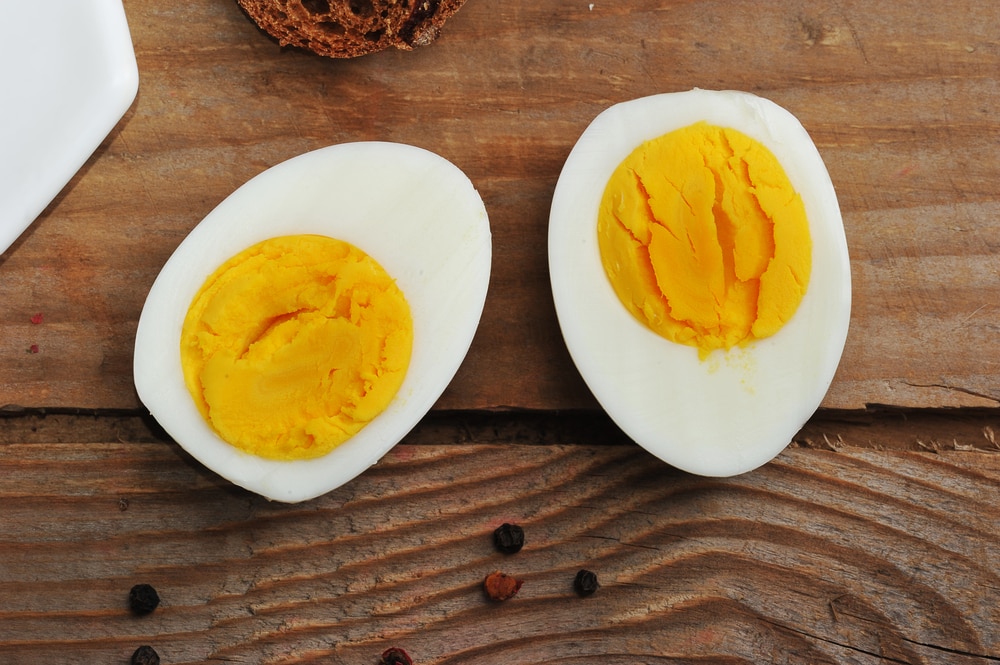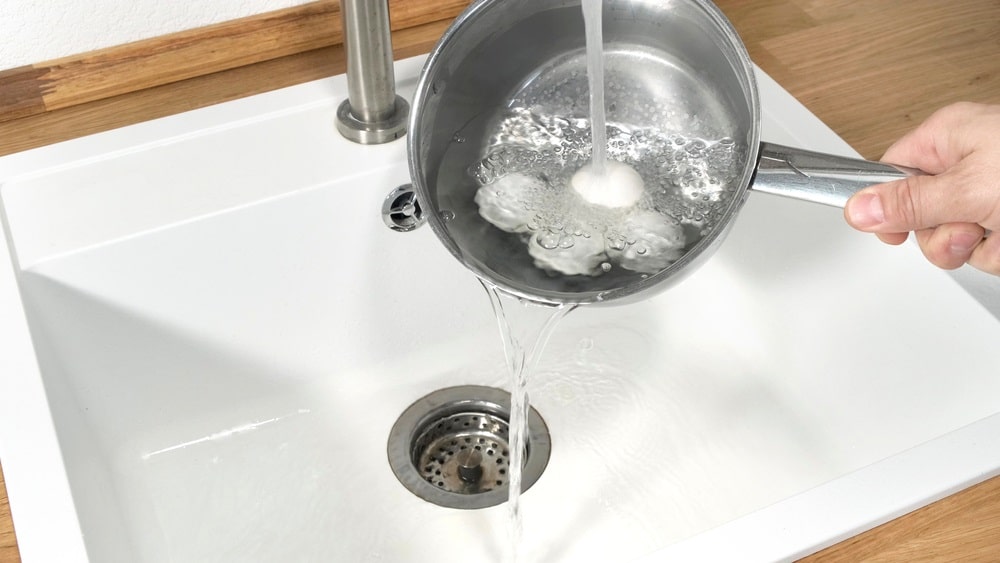
Everyone has a preference when it comes to how they like their eggs done. Some prefer a soft yolk and set white while others insist that the entire egg must be firmly set.
This requires precise timing and while it may seem a simple task, boiling an egg is tricky because you can’t peep inside to see what’s happening!
Added to that, eggs come in different sizes so while the instruction “boil for 3 minutes for a soft egg” may work for 51g eggs, a jumbo-sized egg will require longer.
Today we are going to focus on hard-boiled eggs. What happens if you boil an egg and think it is hard-boiled only to find it is still runny when you open it? Is there any way to salvage it?
Read on because we are going to teach you how to fix undercooked hard-boiled eggs.
Why would you need eggs to be hard-boiled?
- It is some people’s breakfast preference. Many people do not like the texture or taste of a soft-boiled egg, finding it slimy.
- Many recipes require firmly set eggs ranging from egg mayonnaise for sandwiches to eggs for salad Nicoise or curry. In these instances, soft eggs just won’t do.
How to avoid soft eggs
It is important to use the right cooking method to ensure firm eggs so here are a few pointers:
- Put the eggs into a pot of cold water. They should not be crowded and should be in a single layer on the bottom of the pot.
- The water should cover the eggs completely by at least an inch.
- Set the pot over a high flame. Once the water starts boiling, start your timer and boil the eggs for at least 12-14 minutes, depending on their size.
- Once the water starts to boil, put the lid on to ensure the water does not evaporate and to keep the heat inside.
- While the eggs boil, prepare a bowl of iced water.
- Once the eggs are ready, remove them from the pot with tongs and put them into the iced water to cool. This will help the shells to peel off easily.
How to Fix Undercooked Hard-Boiled Eggs
1. If you open the first egg and discover that it is undercooked, put the remaining eggs back into the pot and reboil them as before for an extra 5 minutes.
2. If you have already peeled the eggs but the yolks have not broken, you can cook them further by poaching them . Bring a large pot of water to a rolling boil. There should be at least five inches of water inside.
Do not add salt as this will cause the egg whites to form long, untidy ribbons. Add a tablespoon of white vinegar to the water. (Don’t worry- you will not be able to taste it but it will help the whites to hold together.)
Now, drop the peeled eggs one by one carefully into the rapidly boiling water. Boil for about 3-5 minutes until the whole egg is set. Remove the eggs with a slotted spoon onto paper towels to drain the water.
You may now use the eggs as you would have used your hard-boiled eggs. Of course, they will not be the perfect shape for salad but they will be great for mashing with mayonnaise for egg salad.
3. Another way to fix soft-boiled eggs that have been peeled is to place them gently in a steamer basket and cook them for longer until the yolks have set.
What NOT to do
- Do not try to continue to cook your eggs in the microwave as the yolk will explode even if the eggs have been peeled.
- You may be tempted to avoid the problem altogether by boiling the eggs for half an hour. That should do it! No…the eggs will end up with a nasty-looking green ring around the yolks and a rubbery texture. Instead, follow our time guide below for perfect hard-boiled eggs in the future.
Times for perfect hard-boiled eggs
For eggs of any size from large to jumbo, once the water has started to boil, set the timer for 12-14 minutes. This will ensure that the yolks are firmly set but the eggs will not be overcooked.
To conclude
We hope our solutions will help you to rescue your undercooked boiled eggs. Let us know how it went for you in the comments below!

